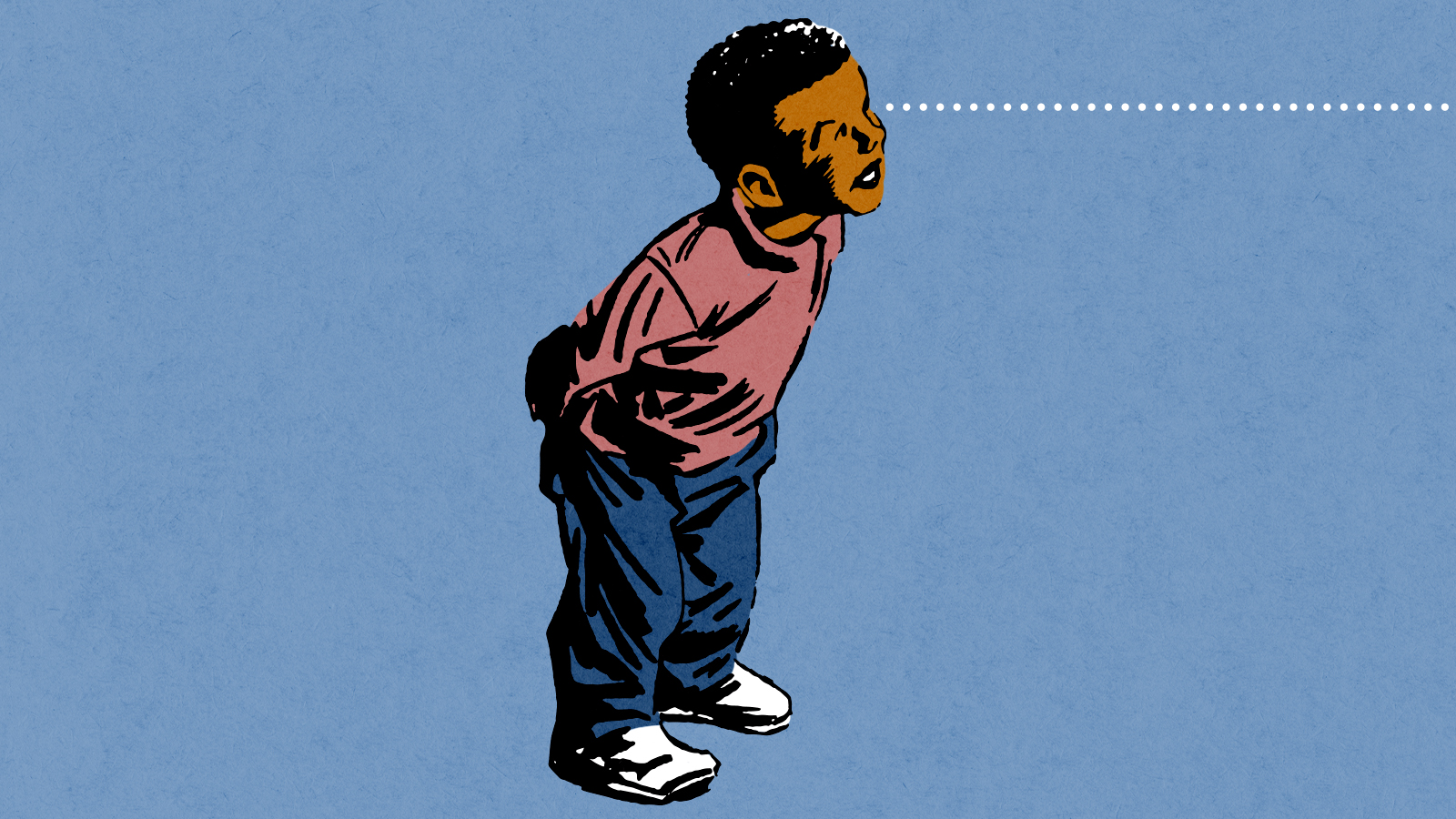The week's best parenting advice: March 8, 2022
Stop telling your kids to stop staring, the problem with BMI shaming, and more


A free daily email with the biggest news stories of the day – and the best features from TheWeek.com
You are now subscribed
Your newsletter sign-up was successful
1. Stop telling your kids to stop staring
Christina Cipriano is used to other parents scolding their children for staring at her son, who has a rare genetic disorder called Phelan-McDermid Syndrome (PMS), but she wishes they would stop. The adaptive Rifton bike her son uses to get around is cool — it makes sense that kids stare at it. And "a child who is staring is learning," writes Cipriano. Parents shouldn't be teaching their children to recoil from the opportunity to learn about children with disabilities. So when you see your child staring at someone who is different from them, ask your child if they have questions about what they see, model humanity by beginning a conversation with the child or helping your child do so, or simply introduce your child. "We know you see us. And we see you, too. Let's start with hello," writes Cipriano.
2. The problem with BMI shaming
Weight and body mass index — children's body size relative to others of the same sex and age — feature heavily among the metrics doctors use to assess a child's health, but "these numbers alone are not reliable indicators," writes Ashley Austrew in Romper. BMI measurements have misclassified millions of Americans as "unhealthy," and people of color are particularly susceptible to misclassification because BMI doesn't account for body variance across races and ethnicities. "[BMI] implies that kids in the so-called overweight and obese categories are at risk when many are not, and then for kids in the so-called normal range, it's like, 'Their weight is fine, so they're healthy,'" says family doctor Katja Rowell. Where weight is a legitimate concern, it shouldn't be the sole focus, Austrew writes, and if you need to discuss it with a doctor, make sure the child isn't in the room.
The Week
Escape your echo chamber. Get the facts behind the news, plus analysis from multiple perspectives.

Sign up for The Week's Free Newsletters
From our morning news briefing to a weekly Good News Newsletter, get the best of The Week delivered directly to your inbox.
From our morning news briefing to a weekly Good News Newsletter, get the best of The Week delivered directly to your inbox.
3. Making sense of vaccine efficacy for kids
While Pfizer's COVID-19 vaccine protects pretty well against severe disease in 5- to 11-year-olds, new evidence suggests it is a lot less effective at preventing infection in that age group than in older kids. But risk isn't binary, writes Jessica Grose in the New York Times. The goal of vaccination "was not to prevent every runny nose or respiratory symptom, but to stop hospitalization and stop death and reduce the strain on our health care system," says pediatric infectious disease expert Yvonne Maldonado. And circumstances have changed in the last six months; we have "fairly high" population immunity from infections and vaccination, and case rates have fallen around the country. COVID-19 still poses some risks to kids but it's "in line with a lot of the other risks we as parents deal with all the time and don't even think about," says pediatric infectious disease specialist Dr. Sean O'Leary.
4. The importance of swim lessons
Water safety is important, even during a pandemic, writes Kimberly Zapata in Parents. Learning to swim is not only good exercise, it's also "a life-saving skill," says Phyllis Agran of the American Academy of Pediatrics (AAP). "Recent studies suggest that water survival skills training and swim lessons can help reduce drowning risk for children," the AAP writes, which is why the organization recommends that children start learning to swim at 1 (babies under one can't raise their heads out of the water, which poses a breathing hazard). Swim lessons can also improve cardiovascular health, strengthen lung capacity, encourage muscular development, help develop and hone fine motor skills, aid digestion, improve concentration and memory, and reduce stress. "If your child hasn't already started in a learn-to-swim program, now is the time," the AAP states.
A free daily email with the biggest news stories of the day – and the best features from TheWeek.com
5. When your 2-year-old won't listen
Having a 2-year-old is kind of "like a Charles Dickens novel: the best of times, the worst of times," writes Megan Leahy in The Washington Post. And while it's normal to feel like your authority as a parent is eroding during the terrible twos, parents should remember that 2-year-olds are in the process of self-discovery — without the ability to see things from another person's perspective. So although their behavior may feel manipulative, it isn't. "He is just a little ball of willfulness, and it will pass," writes Leahy. In the meantime, don't bother getting into power struggles with a 2-year-old and focus on holding boundaries that keep him safe from himself. "He will thrash, throw a tantrum, bite, kick, and cry. Your job is to wait until that is over, then move on." There's no need for talking or shaming or prodding. "The boundaries are doing the teaching. You can't reason or discuss logic with a toddler," Leahy writes.
Stephanie H. Murray is a public policy researcher turned freelance writer.
